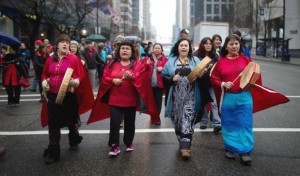Although the federal government’s decision to reject Taseko’s $1.5 billion gold-copper mine project may appear as an appeasement of tensions with First Nations, I believe the decision resulted from the society’s change in attitude andt priorities. Taseko faces new social, political and environmental external pressures.
Largely due to the First Nations, British Columbia has embraced ecological values, becoming more conscious of the effects of industry on the environment. In order for Taseko to deliver on its value proposition, they will inevitablely disturb to the fragile ecosystem of Tsilhqot’in tribal park through its key activities. The court outcome is a result of the advent of a cultural limitation.
From an ethical standpoint, the government has a social responsibility to act in accordance with societies values but also to promote economic activity. I believe there is a chance that Taseko will receive the grant to proceed because of the potential economic benefit, but the company will face environmental regulations. This will increase costs as they must use ecofriendly practices and alter the way they channel and market their product.
Lastly, in order for Taseko to be allowed to operate near protected land, they must cooperate with First Nations. This is an opportunity as First Nations could provide the resource of knowledge of the land, and also to gain society’s support.










